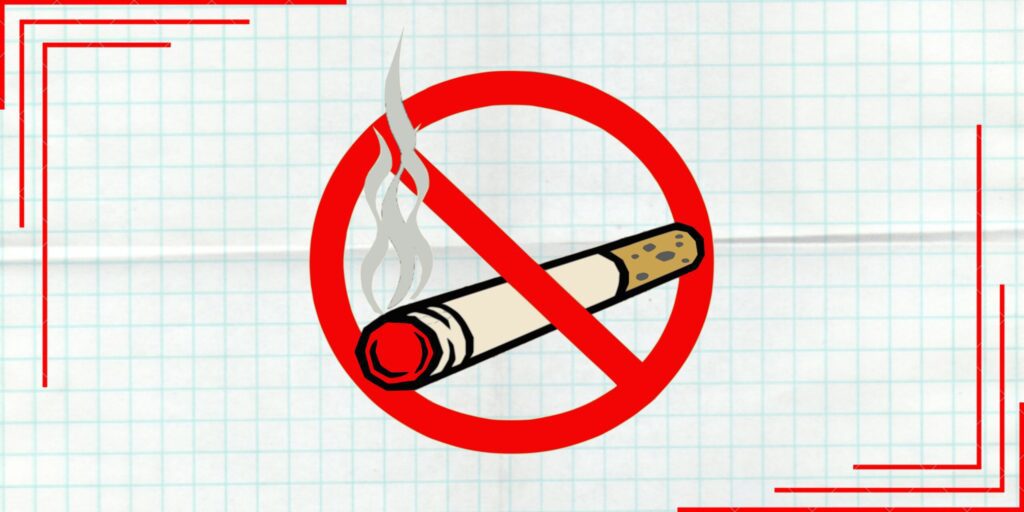Harmful effects of smoking
The harmful effects of smoking are unravelled sedulously in this article. Tobacco is harmful to your health in any form that it is smoked, so avoid doing so. There is no single tobacco product on the market that does not contain harmful substances, including acetone, tar, nicotine, and carbon monoxide. The chemicals that you breathe in affect more than just your lungs. They have the potential to affect your whole body. When you smoke, you put your body at risk for several ongoing complications as well as the potential for long-term effects on your body’s systems. Even though smoking can raise your risk of various health problems over several years, some bodily effects can be seen right away. Tobacco smoke has a devastating effect on your well-being, and smoking is never a good idea. There is no health benefit to switching from cigarettes to cigars, pipes, or hookahs. Read on for information about the signs and symptoms, as well as the overall effects that smoking has on the body.
Central Nervous System
Cigars and hookahs both encompass a slew of substances contained in cigarettes. According to research, these substances produce more than 7,000 chemicals when they burn, and as many as 69 of those chemicals have been linked to cancer. The harmful effects of smoking include affecting the central nervous system. Nicotine, a drug that can alter one’s mood, is one of the components found in tobacco. It only takes a few seconds for nicotine to reach your brain, and once it does, you’ll notice an increase in your level of alertness. On the other hand, as soon as that effect wears off, you begin to feel exhausted and crave more. Because nicotine is such a powerful habit-forming substance, it can be very challenging for people to give up smoking. Your cognitive functioning may suffer, and you may experience anxiety, irritability, and depression due to nicotine withdrawal caused by the drug’s physical effects. In addition, pull-out can trigger headaches and disrupt sleep patterns.
Respiratory system
The harmful effects of smoking disturb the respiratory system. Inhaling smoke carries the risk of damaging your lungs. This damage accumulates over time, resulting in a wide range of issues. The destruction of the air sacs in your lungs that occurs due to smoking and the increased risk of infection puts smokers at greater risk of developing chronic, nonreversible lung diseases such as emphysema. Chronic bronchitis is long-term inflammation of the lining of the lungs’ airways caused by smoking. An umbrella term for a group of lung diseases that includes COPD and cancer is the effects of smoking. As your lungs and airways begin to heal after quitting tobacco, you may experience temporary congestion and respiratory discomfort. Mucus production is a good sign that your lungs are healing after quitting smoking. Smoking parents are more likely to have their children suffer from coughing, wheezing, and asthma attacks; Pneumonia and bronchitis are also more common in this population.
Other detrimental effects
Nicotine causes the blood vessels to constrict, thereby limiting the flow of oxygen-rich blood through them. Peripheral artery disease might develop over time as a result of blood vessel narrowing and damage—these harmful effects of smoking damage the entire cardiovascular system. New research shows that smoking significantly increases the risk for skin cancer because of the chemicals in tobacco. Smoking can still harm your fingernails and toenails, no matter how careful you are. According to an older study, cigarette use has been linked to increased thinning, balding, and greying of the hair. Several types of cancer in the mouth, oesophagus, larynx, and throat are more likely to occur due to smoking; smokers are also more likely to develop pancreatic cancer than non-smokers. There is a higher likelihood of oral cancer for those who “smoke and yet don’t inhale,” as well. Doctors can help you quit smoking with their medications. Certain smoking cessation resource centres provide smokers with advice, anecdotes, and other resources. Since it impacts every system of the body, quitting smoking has instantaneous and long-term advantages. This is the most significant move forward into a lengthier, satisfying future.



